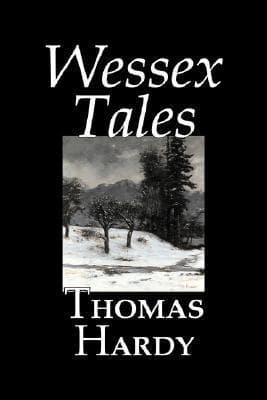
Book Review Summary: Wessex Tales
Introduction
Thomas Hardy, the renowned English author, wrote the collection of six stories titled "Wessex Tales" in 1888. Set mainly in the fictional land of Wessex, these stories delve into the lives of characters struggling against their passions and circumstances. While some readers find the tales bleakly ironic and unforgiving, others appreciate Hardy's uncompromising realism and his ability to capture the essence of rural life in the 19th century. In this article, we will explore the book's reception, analyze common opinions, and discuss the reasons why readers recommend and do not recommend "Wessex Tales."
About Thomas Hardy
Thomas Hardy, born in 1840 in Dorset, England, was a naturalist writer who gained recognition for his novels and poetry. He set most of his work in the semi-fictional land of Wessex, where he delineated characters facing challenges in their personal lives. Hardy's writing reflects his fascination with the supernatural, as evidenced by his poem "A Pair of Blue Eyes," which originated the term "cliffhanger." His novels, such as "Far from the Madding Crowd" and "Tess of the D'Urbervilles," have become classics of 19th Century British literature.
Analysis of Views
-
Emotional Depth: Many readers appreciate the emotional depth and complexity of the characters in "Wessex Tales." They find themselves drawn into the stories and empathize with the protagonists as they navigate life's challenges.
-
Realism and Regionalism: Hardy's realistic portrayal of rural life in Wessex resonates with readers who appreciate his ability to capture the rhythms and folkways of traditional rural society. The stories feel authentic and immersive, making them stand out among other works of fiction.
-
Themes of Love and Betrayal: Several stories in "Wessex Tales" explore themes of love and betrayal. Readers find these explorations thought-provoking and engaging, as they explore the complexities of human relationships.
-
Gothic Elements: Some readers appreciate the inclusion of gothic elements in certain stories, such as supernatural occurrences or mysterious events. These elements add an extra layer of intrigue to the narratives, making them more captivating.
-
Historical Context: The stories in "Wessex Tales" are set in a time when industrialization was transforming rural England. Readers find it fascinating to see how Hardy portrays the effects of these changes on the lives of his characters, providing a glimpse into the social and cultural landscape of the era.
Reasons for Recommendation
-
Engaging Storytelling: Readers recommend "Wessex Tales" for its engaging storytelling. The tales are well-crafted, with memorable characters and compelling plotlines that keep readers hooked from beginning to end.
-
Emotional Resonance: The emotional depth and complexity of the characters in "Wessex Tales" resonate with readers. They find themselves emotionally invested in the stories and appreciate Hardy's ability to create relatable and nuanced portrayals of human nature.
-
Regionalism and Realism: The realistic portrayal of rural life in Wessex, along with Hardy's regionalist approach, makes "Wessex Tales" stand out among other works of fiction. Readers appreciate the authenticity and immersive quality of the stories set in this fictional landscape.
Reasons for Not Recommendation
-
Bleakness and Pessimism: Some readers find the stories in "Wessex Tales" bleakly ironic and unforgiving, feeling that they lack a sense of hope or redemption. They may prefer lighter or more uplifting narratives.
-
Length and Brevity: Some readers feel that the brevity of the stories in "Wessex Tales" limits their ability to explore nuances of happiness or explore deeper themes. They may prefer longer works that allow for more exploration and development of characters and plotlines.
Conclusion
"Wessex Tales" by Thomas Hardy is a collection of six stories set in the fictional land of Wessex, exploring the lives of characters struggling against their passions and circumstances. While some readers find the tales bleakly ironic and unforgiving, others appreciate Hardy's uncompromising realism and his ability to capture the essence of rural life in the 19th century. The emotional depth of the characters, realistic portrayal of rural life, themes of love and betrayal, and gothic elements make "Wessex Tales" a compelling read for those seeking a taste of Thomas Hardy's writing style. While some readers may prefer lighter or more uplifting narratives, those who appreciate engaging storytelling, emotional resonance, regionalism, and realism will likely find "Wessex Tales" a rewarding reading experience.